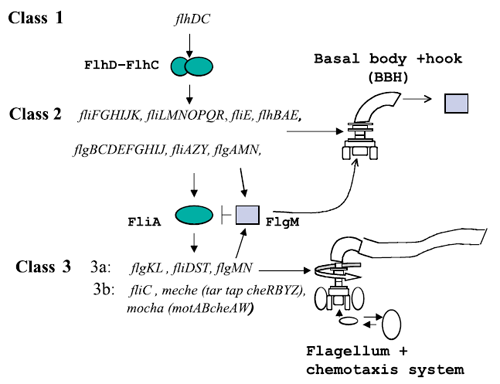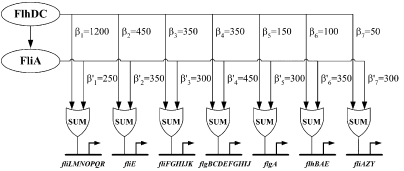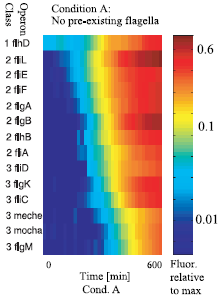Team:Paris/Flagella
From 2008.igem.org
Description of the genetic pathway that lead to flagella assemblyThe construction of E. coli flagellar system is organized into a complex hierarchy. The different parts of the flagella are successively assembled parts by parts. This architecture is also present in the network of genes that contributes to its set-up. A global transcription factor FlhDC activates the synthesis of the flagella. This class 1 gene encodes a protein that activates the expression of class 2 genes. Those genes lead to the construction of the basal body of the flagella and its hook. Then FliA, a protein coded by a class 2 gene activates, with FlhDC to the expression of class 3 genes (Figure 1). A quantitative blueprint of the dynamics of the flagella gene networkThe expression of the flagellar genes is precisely orderedWhen the flagella system is turned on, the genes are expressed sequentially. flhD is expressed first, then the class 2 genes, and lastly the class 3 genes. At the heart of each class, the promoters are turned on sequentially, with significant delays, in the order fliL, fliE, fliF, flgA, flgB, flhB, and fliA (Figure 2).The observed order correponds to the spatial position of the gene products during flafellar motor assemblu, going from the cytoplasmic to the extracellular sides. Bibliography
|
 "
"


